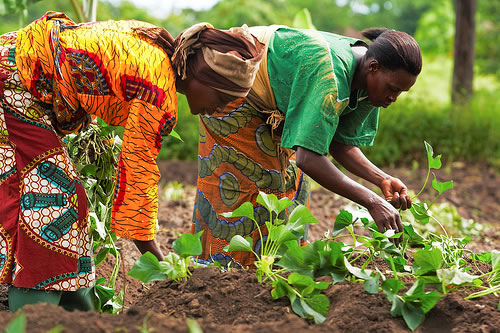On March 8th International Women’s Day, in 148 organizations in over 69 countries representing over 200 million farmers, women apart of the peasant movement La Via Compesina, gather together acknowledging the struggles for gender equalities under neoliberal model and continue promoting La Via main goal: food sovereignty. “This day is about the need to over come gender barriers and build bridges of solidarity in this movement,” says Nettie Wiebe, first female president in the Canadian National Farmers Union and a founding member of the Via Compesina movement.
Since founded in 1993, La Via Compesina has evolved into an international movement that seeks to bring together agricultural workers to defend small-scale sustainable agriculture oppressed under neoliberalism policies, a political philosophy which supports free trade and open markets. By abiding to these policies, governments open borders to large corporations exports. These corporations are known for their excessive use of cheap labor, seizing plots of land from indigenous people and genetically modifying products. A particular company, Monsanto, is a “publicly traded American multinational agricultural biotechnology corporation” one of the first companies to genetically modify plant cells used in common crop seeds. As these genetically modified organisms (GMO’s) are intermingled with regular seed and are traded through out the U.S, Mexico, the Americas etc. GMO planting begins to affect the biodiversity of environment. Due to this, one of the main goals of the Via Compesina is promoting Food Sovereignty. Becoming one of the most powerful response to current food, poverty and climate crisis’s, Food Sovereignty supports “the right of the people to healthy, culturally appropriate food produced through sustainable methods, but also their right to define their own food and agriculture system.” It prioritizes local food production and consumption by placing those who produce, distribute and consume at the heart of the small-scale production. This benefits communities by giving the right to protect its local producers from cheap imports and to control production rather then to the demands of markets and corporations. It also ensures the right to use and manage lands, seed, livestock and biodiversity in the hands of the people compared to a corporate sector, helping to protect the environment from future GMO crops.
Although women account for over 80% of food production, playing essential roles in preserving knowledge and preservation of seeds that guarantee the survival of biodiversity women who only own 2% of the land. “On March 8th, women are finally given recognition, but continue to fight daily for equality, political and social,” says activist Greta Larson. “La Via Compensia brings together all cultures, religions, genders, ages actually gives people hope that they can be the judge of what to produce and how they choose to live.”
































